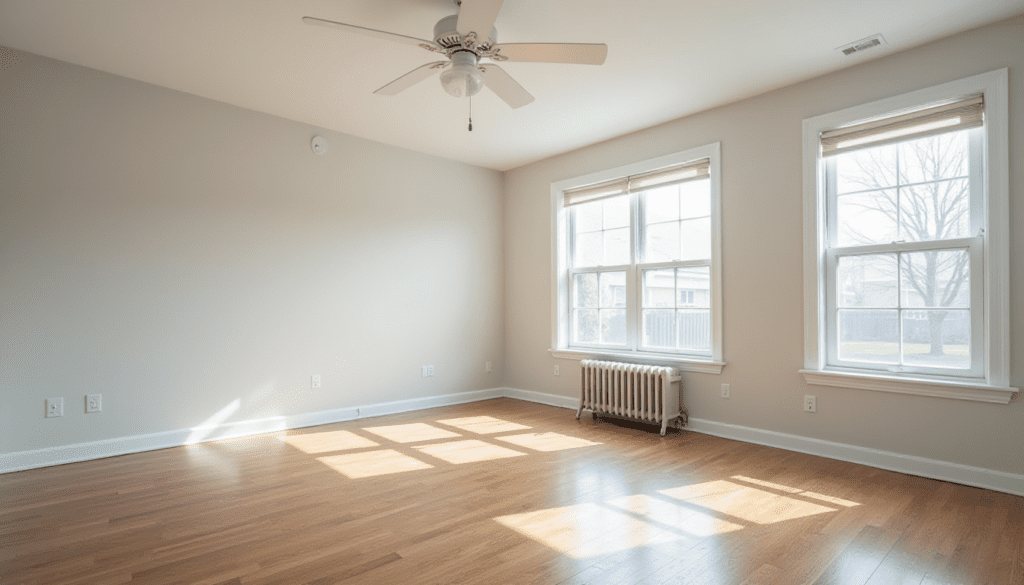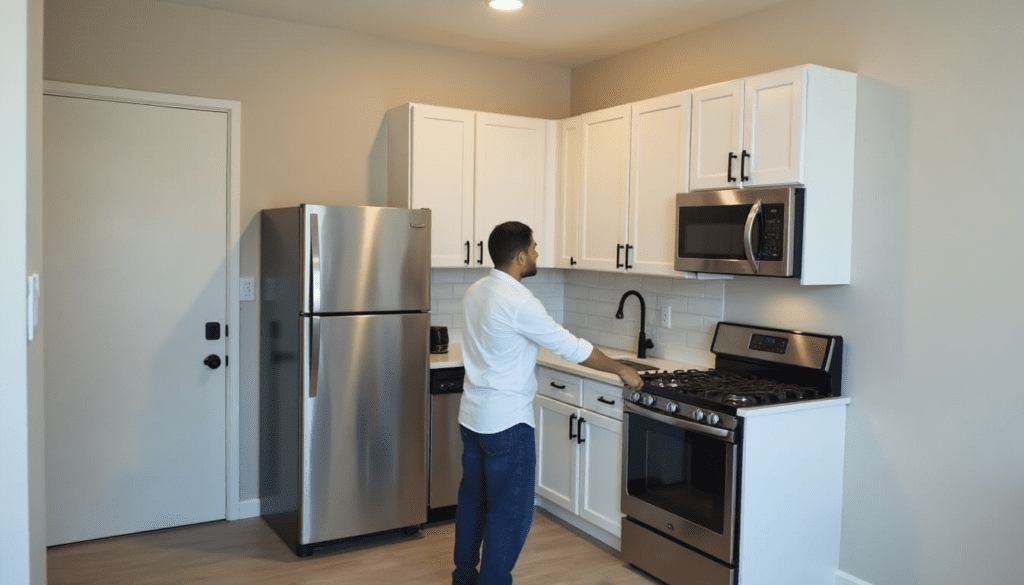Month-to-month rental agreements offer tenants and landlords flexible living and leasing options — especially in cities like Garfield, NJ, where housing demand is evolving rapidly. Whether you’re a property owner managing multiple units or a renter unsure about committing to a long-term lease, this guide breaks down everything you need to know.
We’ll cover the legalities, pros and cons, and expert tips on navigating month-to-month agreements successfully in New Jersey. You’ll learn best practices for drafting clauses, understanding notice requirements, and protecting your rights. By the end of this section, you’ll have a clear roadmap to decide if a month-to-month lease is the right fit for your situation.
What Is a Month-to-Month Lease?
A month-to-month lease is a rental agreement that renews automatically every 30 days until either the landlord or tenant provides written notice to terminate. Unlike traditional 6- or 12-month leases, a month-to-month arrangement does not lock you into a long-term commitment, giving both parties the ability to adapt quickly to changing circumstances.
In Garfield, NJ, the popularity of these leases has surged as more professionals, students, and remote workers seek flexible housing options. Data from recent local listings shows that nearly 25% of available rentals are offered on a month-to-month basis, reflecting a growing trend toward short-term, adaptable living situations.
Why Choose a Month-to-Month Lease?
- Flexibility: If you need to relocate for a job opportunity or personal reasons, you can move with just 30 days’ notice instead of being tied down for a full year.
- Control: Landlords can adjust rent to reflect current market rates without waiting for a lease term to end.
- Convenience: Automatic renewals eliminate the need to negotiate or sign a new lease each month, saving time and paperwork.
That said, this freedom brings uncertainty. Tenants may face sudden rent hikes, and landlords risk higher vacancy rates. Understanding both sides will help you draft terms that balance flexibility with security.
For example, tenants might negotiate a cap on annual rent increases even in a month-to-month setting, while landlords could require a modest security deposit to offset turnover costs. These adjustments can be built into your agreement to provide clarity and reduce surprises.
Legal Framework in New Jersey
New Jersey law treats month-to-month tenancies similarly to standard leases, with additional provisions to address their rolling nature. Once any fixed-term lease expires and the tenant remains with the landlord’s consent, the tenancy converts to month-to-month by operation of law. No new document is required unless both parties prefer one.
State Laws Governing Month-to-Month Tenancies
Under the New Jersey Statutes Annotated (N.J.S.A. 2A:18-53), after a lease’s fixed term ends, the arrangement becomes a periodic tenancy. Key requirements include:
- Statutory Notice: Both landlord and tenant must give at least 30 days’ written notice to terminate a month-to-month tenancy. Notices must align with the rent payment cycle (e.g., notice on the 15th terminates on the 15th of the next month).
- Implied Agreement: Continuation without objection implies consent to a month-to-month lease.
- Eviction Grounds: Landlords still need just cause (nonpayment, violation of lease terms, etc.) to pursue eviction through formal court proceedings.
For an in-depth overview, refer to the NJ Landlord-Tenant Information Guide.
Notice Requirements (Termination & Rent Increase)
New Jersey mandates at least 30 days’ written notice for both lease termination and rent increases in month-to-month tenancies. Notices must be delivered in writing—email or certified mail is recommended to create a clear record.
- Termination Notice: Landlords may end the lease without cause, provided proper notice. Tenants only need to state their intent to vacate.
- Rent Increase Notice: Any rent hike must be communicated 30 days before the next rent due date. There is no statutory cap on increases, so frequent small hikes are possible.
- Local Ordinances: While Garfield generally follows state rules, some municipalities impose additional notice requirements or caps. Always verify local regulations or consult a housing attorney.
Documenting all notices in writing protects both parties—tenants can challenge improper increases, and landlords can demonstrate compliance if disputes arise.
Benefits for Landlords and Tenants
Month-to-month leases can be a win-win when structured thoughtfully. In Garfield’s dynamic rental market, they offer the chance to react quickly to shifting demand and accommodate both short- and long-term renters.
For Tenants
- No Long-Term Obligation: Ideal for individuals who value mobility—students, interns, or those on short-term work assignments.
- Try Before You Commit: Allows renters to test a neighborhood, assess commute times, or evaluate living arrangements before signing a longer lease.
- Adaptable Living: Easier to adjust living situations during life changes such as job relocation, marriage, or family growth.
- Lower Upfront Costs: Often no hefty fees for early termination; tenants simply give notice and move on.
For Landlords
- Dynamic Pricing: Adjust rent monthly to match current market trends and rental comparables in Garfield.
- Tenant Screening Flexibility: Landlords can end problematic tenancies swiftly without waiting for a fixed lease term to expire.
- Seasonal Rentals: Cater to short-term renters—visiting academics, traveling nurses, or tourists—without complex subletting arrangements.
- Reduced Vacancy Gaps: By offering month-to-month options, landlords can fill units quickly when long-term tenants depart.
Negotiating a small lease renewal fee or implementing a modest rent escalation clause can help landlords offset turnover costs while still offering tenant flexibility.
Drawbacks and Potential Risks
Despite the upsides, month-to-month agreements introduce uncertainty that both landlords and tenants must manage proactively.
Risks for Tenants
- Sudden Rent Increases: With only 30 days’ notice required, tenants may face unpredictable budget changes.
- Possible Lease Terminations: Landlords can opt to end the lease without cause, potentially leaving tenants scrambling on short notice.
- Difficulty in Securing Loans: Landlords sometimes prefer longer-term tenants for stability when financing or refinancing property.
- Limited Negotiating Power: Frequent rent negotiations may favor landlords in tight markets.
Risks for Landlords
- Higher Turnover Costs: Frequent tenant changes lead to cleaning, repainting, and re-screening expenses.
- Income Instability: Monthly renewals mean no guaranteed revenue stream beyond the current month.
- Marketing Overhead: Constant need to advertise and show the property can be time-consuming and costly.
- Wear & Tear: Short-term tenants may treat a property less like home, increasing maintenance demands.
To mitigate these risks, landlords can require a lease renewal fee, set a minimum stay (e.g., three months), or include clauses that cover reasonable rent caps. Tenants might negotiate a rent-stabilization addendum or move-in credits.
How to Draft a Month-to-Month Agreement
Creating a clear, legally compliant month-to-month rental agreement in Garfield, NJ is essential for protecting both landlord and tenant. While you can use a general lease template, it should be modified specifically for short-term, renewable arrangements.
Many legal disputes arise from vague or incomplete lease terms. Whether you’re using a form from a property management software or drafting your own, clarity and detail are key. Below are essential components every month-to-month rental contract should include.
Essential Clauses to Include
- Parties Involved: Full names of the landlord(s) and tenant(s), with accurate addresses and contact information.
- Lease Term: Specify that the lease is on a “month-to-month” basis, renewing automatically every 30 days until terminated with proper notice.
- Rent Amount and Due Date: State the exact rent amount, when it is due (e.g., the 1st of each month), and acceptable payment methods.
- Security Deposit: NJ law limits the deposit to 1.5x the monthly rent and outlines how it must be stored and returned.
- Notice Periods: Clearly state that 30 days’ written notice is required for termination by either party.
- Utilities: Specify which utilities are included or separately billed (gas, water, internet, trash, etc.).
- Maintenance and Repairs: Outline responsibilities for upkeep, repairs, and emergency issues.
- Rules and Restrictions: Smoking, pets, noise policies, subletting, parking, and common area use.
Templates can be customized with Garfield-specific language, especially for multi-family units or garden apartments common in the area.
Sample Template Overview
If you’re unsure where to start, the New Jersey Department of Community Affairs and platforms like LawDepot offer free or low-cost templates. Be sure the template you use supports the “month-to-month” provision specifically, rather than fixed-term leasing.
Property management firms like Rent Shield Property Management also offer professional lease drafting services to ensure compliance with NJ laws and reduce risk.
Rent Price & Increases in Garfield, NJ
Rental pricing in Garfield, NJ has seen moderate growth year-over-year, with average one-bedroom units ranging from $1,300 to $1,750. Month-to-month rentals tend to be priced slightly higher than long-term leases due to their added flexibility and turnover risks.
Market Rates & Trends
Recent data shows that Garfield’s month-to-month rentals are increasing in demand, especially for small apartments and basement suites. Students attending nearby Montclair State University and professionals commuting into Manhattan often seek short-term leases.
Landlords can use platforms like Zillow, Apartments.com, and Rentometer to stay current with local rent comparisons. Charging a premium of 5–10% above traditional leases is common for monthly arrangements.
Proper Notice and Documentation
New Jersey law (N.J.S.A. 2A:18-61.1) requires landlords to issue a written notice of any rent increase at least 30 days in advance. The notice should be:
- In writing, dated, and signed
- Delivered by hand, email (with consent), or certified mail
- Clearly state the new rent amount and effective date
For recordkeeping, landlords should retain proof of delivery. Tenants unsure of the legality of a proposed rent increase can refer to the NJ Rent Increase Notice Guidelines for clarification and dispute options.
Utilities & Maintenance Duties
Who pays for utilities in a month-to-month lease? The answer depends on the rental agreement. In Garfield, it’s common for landlords to include water, sewer, and trash collection in the rent, while tenants cover gas, electric, and internet.
Standard Utility Responsibilities
- Landlord Covers: Water, sewer, garbage, common area lighting (multi-unit)
- Tenant Covers: Electric, gas, cable/internet, optional security systems
Clearly defining these duties in writing prevents disputes. It’s also smart to include how utility overuse will be handled if the bill is shared or capped.
Maintenance and Repair Duties
- Landlord’s Duty: Maintain habitability — working heat, water, plumbing, electrical, locks, and safety compliance.
- Tenant’s Duty: Notify landlord promptly of damage or repair needs, maintain cleanliness, and avoid negligent behavior that could cause damage.
In Garfield, many homes are older properties. For landlords, regular inspections and preventive maintenance (HVAC checks, plumbing updates) are crucial for keeping turnover smooth between short-term tenants.
Entry Rights & Privacy Standards
Tenants have the right to quiet enjoyment of their rental unit. That means landlords in New Jersey — including Garfield — must provide proper notice before entering a tenant’s unit, even in month-to-month leases.
New Jersey Law on Landlord Entry
There’s no specific statute outlining notice period for non-emergency entry in NJ, but best practice (and commonly accepted standards) require at least 24 hours’ written notice unless it’s an emergency (like flooding or fire).
Acceptable reasons for entry include:
- Repairs or maintenance
- Inspections or code compliance checks
- Showing the unit to prospective renters or buyers
The rental agreement should outline this procedure. If a tenant believes their rights are being violated, they can contact the New Jersey Division of Consumer Affairs or local Garfield housing office.
Terminating the Agreement
One of the most appealing aspects of month-to-month leases is the ease of termination. However, both parties must follow the correct procedure to avoid legal disputes or penalties.
For Landlords: Notice, Penalties
Landlords who wish to end a month-to-month lease in Garfield must provide at least 30 days’ notice in writing. This notice should clearly state the final day of the lease term and be delivered in person or via certified mail. If the tenant refuses to vacate after proper notice, the landlord must file for eviction in local court — unlawful lockouts are illegal under NJ law.
Important: If the lease is ending due to violations (non-payment, damage, illegal activity), landlords may proceed with formal eviction based on “just cause.” It’s recommended to consult legal counsel or a property manager for these cases.
For Tenants: Moving Out Gracefully
Tenants must also provide a 30-day written notice. This should include:
- Full name and address
- Date of intended move-out
- Forwarding address for security deposit
Tenants should leave the unit clean and undamaged. A walk-through with the landlord can help avoid deductions from the security deposit. Under NJ law, landlords must return the security deposit within 30 days of move-out, minus any itemized deductions for damages.
Moving tip: In high-turnover towns like Garfield, consider scheduling movers early and confirming with your new landlord to avoid overlapping rent obligations.
Frequently Asked Questions (FAQ)
We’ve answered some of the most common questions about month-to-month rental agreements in Garfield, NJ, based on what people frequently search for online. These can help clarify local rental laws and responsibilities.
What is a month-to-month lease in NJ?
A month-to-month lease in New Jersey is a short-term rental agreement that automatically renews each month unless either the landlord or tenant provides a 30-day written notice to terminate. These leases are flexible and legally recognized under state law.
How much notice is required to terminate a month-to-month lease in Garfield, NJ?
Both landlords and tenants must provide at least 30 days’ written notice to terminate the lease. The notice period must align with the rent due date, and it should be delivered via certified mail or in-person for legal proof.
Can a landlord increase rent during a month-to-month tenancy?
Yes, landlords in Garfield and throughout New Jersey may raise rent during a month-to-month lease, but they must give at least 30 days’ written notice before the new rent amount takes effect.
What are the advantages of a month-to-month rental agreement?
Month-to-month leases offer flexibility, short-term commitment, and easy exit options for both parties. They’re ideal for temporary housing situations, students, or those relocating for work.
Are renters protected under a month-to-month lease in New Jersey?
Yes, tenants still have protections under New Jersey landlord-tenant laws. Landlords must follow proper notice procedures, and they cannot evict tenants without legal cause or attempt a lockout without a court order.
Case Study: Garfield Month-to-Month Lease Example
Let’s look at a real-world scenario. Jane, a Garfield resident, signed a 12-month lease for her apartment near River Drive. After the term expired, she and her landlord agreed to continue on a month-to-month basis without signing a new lease. Two months later, Jane received a 30-day written notice informing her of a $100 rent increase.
Because the landlord followed New Jersey’s legal procedure — providing adequate notice and using written communication — the increase was lawful. Jane accepted the new rent and stayed another three months before giving her own 30-day notice and moving to another town.
This example highlights how month-to-month arrangements can benefit both parties when communication and proper documentation are in place.
Internal & External Resources
For more help navigating rental laws in Garfield and greater New Jersey, explore these valuable resources:
Internal Links
- Understanding Landlord-Tenant Rules in NJ
- How to Legally Raise Rent in New Jersey
- Eviction Laws and Tenant Protections
External Links
Call to Action
Ready to rent or manage a property in Garfield, NJ? Whether you’re a landlord setting up a new lease or a tenant looking for flexibility, Rent Shield Property Management can help.
Our experienced team will ensure your month-to-month lease complies with NJ law, minimizes risk, and protects your rights. We also offer professional tenant screening, rent collection services, and custom lease drafting.
👉 Contact Us Today to Get Started
Related Posts & Further Reading
- NJ Tenant Rights You Should Know in 2024
- Security Deposit Laws in New Jersey Explained
- How to Handle Lease Renewals in NJ






